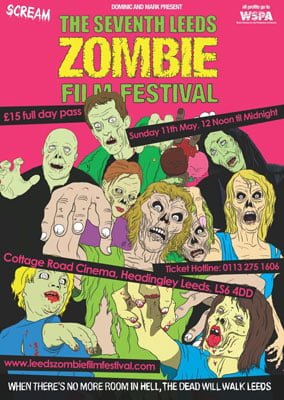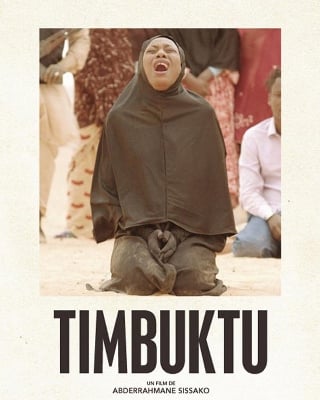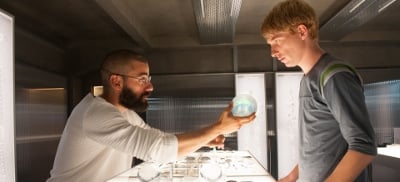Chocolate Bear: ‘Coda’
August 21, 2014
[Image © Chocolate Bear]
Watch Director DERMOT DALY’s short film created exclusively for TSOTA, to find out a little more about Film Production Company Chocolate Bear… PLUS Adam Button reviews short film ‘Coda’, set and shot in Armley…
This September, Chocolate Bear Productions will be taking (among other things) a short film called Coda to London’s Portobello Film Festival. Before it goes on show, however, we thought we’d give it a look and tell you what we think of it.
In Coda, director Dermot Daly tackles concepts of love, friendship and loss through the character of Terry (Dominic Gately). Since the death of his friend, Terry has been questioning his life and has spiralled into a crushing state of despair. Over the course of an afternoon, he reminisces about their time together and reflects on how things came to be like this.
The most immediately striking thing about the film is the lack of… well, anything. Coda is shot almost entirely on a terrace in Armley, and apart from a few brief frames of a plant pot, a pint glass and the street outside his house, the main focus is on Terry’s face. What’s more, in terms of conventional action, not that much actually happens – Terry monologues a bit, takes a few drags of a cigarette and puts some pills in his drink. To top it off, it is entirely filmed in black and white, meaning that there isn’t even any colour to look at.
However, this lack of superfluous content is arguably the film’s entire point. By stripping away almost everything but the actor and his lines, Daly forces us to focus on the performance and the words that are being spoken. There are no distractions, and as a result, the film’s themes of coping with loss come through that much more clearly. Furthermore, it highlights just how good both of these aspects are.
Dominic Grace, writer and co-producer, has written a film that has a powerful sense of honesty behind it. A common pitfall of this style of filmmaking is to write dialogue that is far too philosophical-sounding for the characters speaking it, but Grace avoids this entirely. The dialogue is smooth and refined, managing to tackle the heady ideas the film explores while remaining true to the character. Through the collection of anecdotes and reminiscences we are presented with over the short running time, Grace manages to paint an effective picture of a man who feels he has truly lost everything.
Gately’s portrayal of Terry is equally hard to find fault with. I recently had the opportunity to see him in a production of Refugee Boy at the West Yorkshire Playhouse in which he gave a strong performance, and in Coda, he is just as good. With details as small as a movement of the head or a certain look in the eye, Gately changes from cheerfully nostalgic to a man who feels empty on the inside. It’s an impressive piece of acting and one that’s crucial to the overall success of the film.
The decision to film in black and white was an interesting one. Often in film this can come across as monochrome for monochrome’s sake, as there is something of a belief among amateur film makers that it is more artistic to strip the colour from their projects. However, in Coda at least, I believe that it was the right decision. By filming in black and white, Daly accomplishes several things at once; it serves as a metaphor for Terry’s emotional state and it harkens back to the great British New Wave films, from which Daly took inspiration when creating his film.
That isn’t to say that Coda lacks any features that feel a little out of place. One moment in particular springs to mind; at about the halfway point, we are presented with an extreme close up of Terry’s mouth as he says the word ‘bang’. This only lasts about a second, but it’s sufficiently jarring with the style of the rest of the film to make you question why it was used.
However, all things considered, Coda is a very good film. In the course of seven minutes it manages to be emotionally powerful and maintains a grounding in reality that compounds this. Coupled with a strong performance and a strong script, and it isn’t hard to see this film doing very well indeed.
Follow Chocolate Bear on Twitter @ChocolateBearUK for more information about the company and updates on their work.
Adam Button
Coda will be screening at Portobello Film Festival on September 14th alongside ‘Quality Time’ and ‘The Motherland’s Cell’, two other films from Chocolate Bear.
This coming Monday 25th August, ‘Quality Time’ will also be screening at the Chapel Allerton Film Festival.
Filed under: Film, TV & Tech
Tagged with: film reviews



Comments